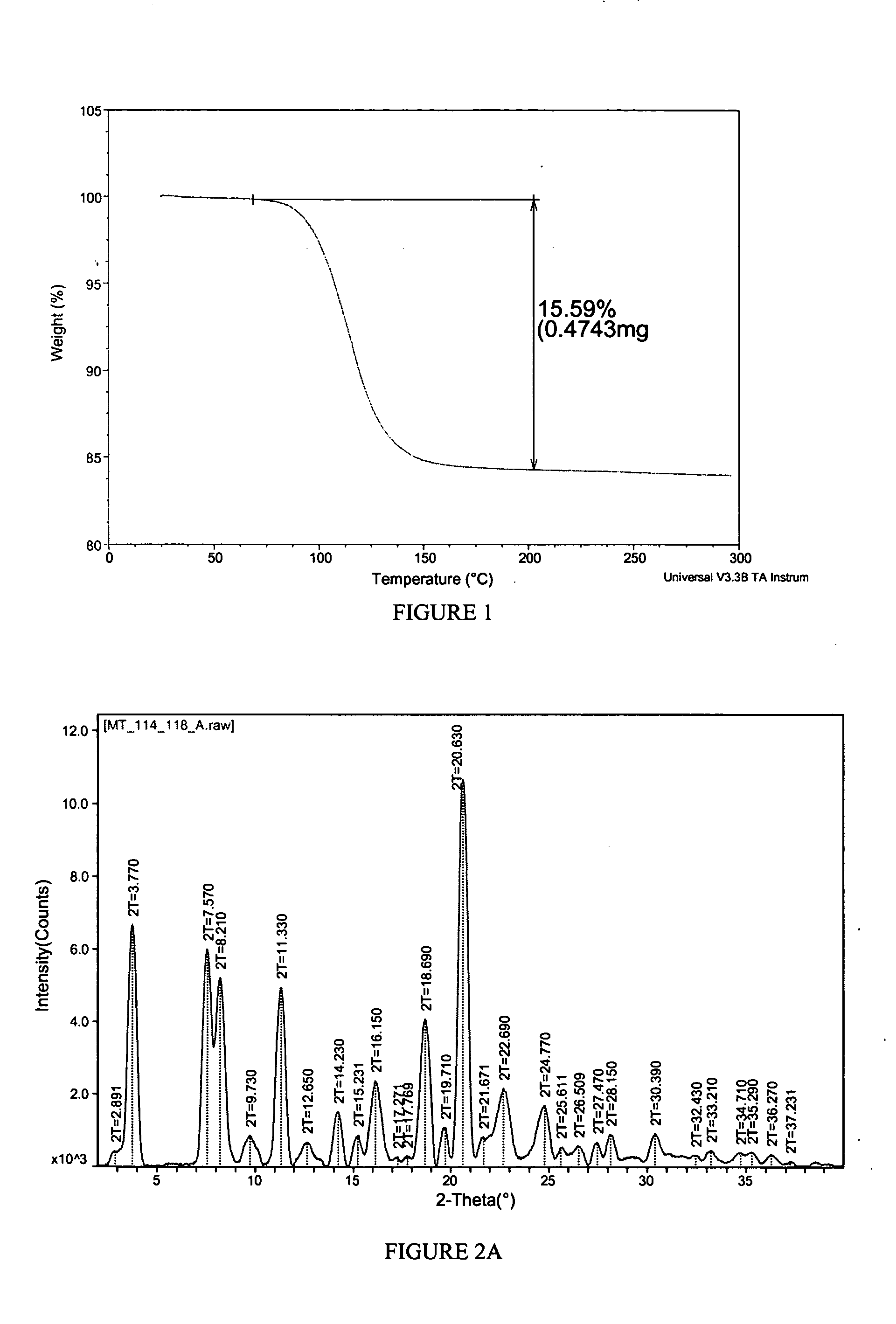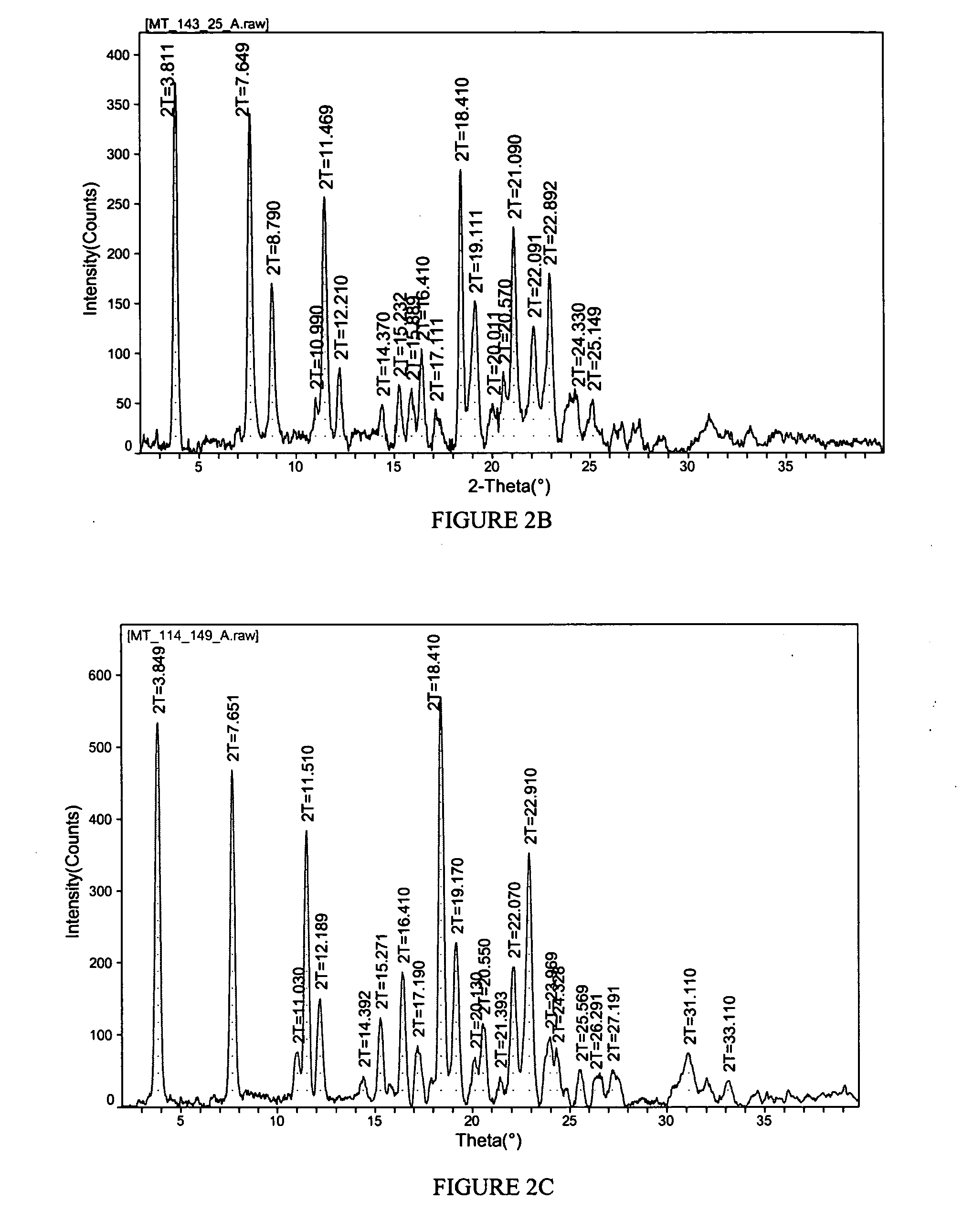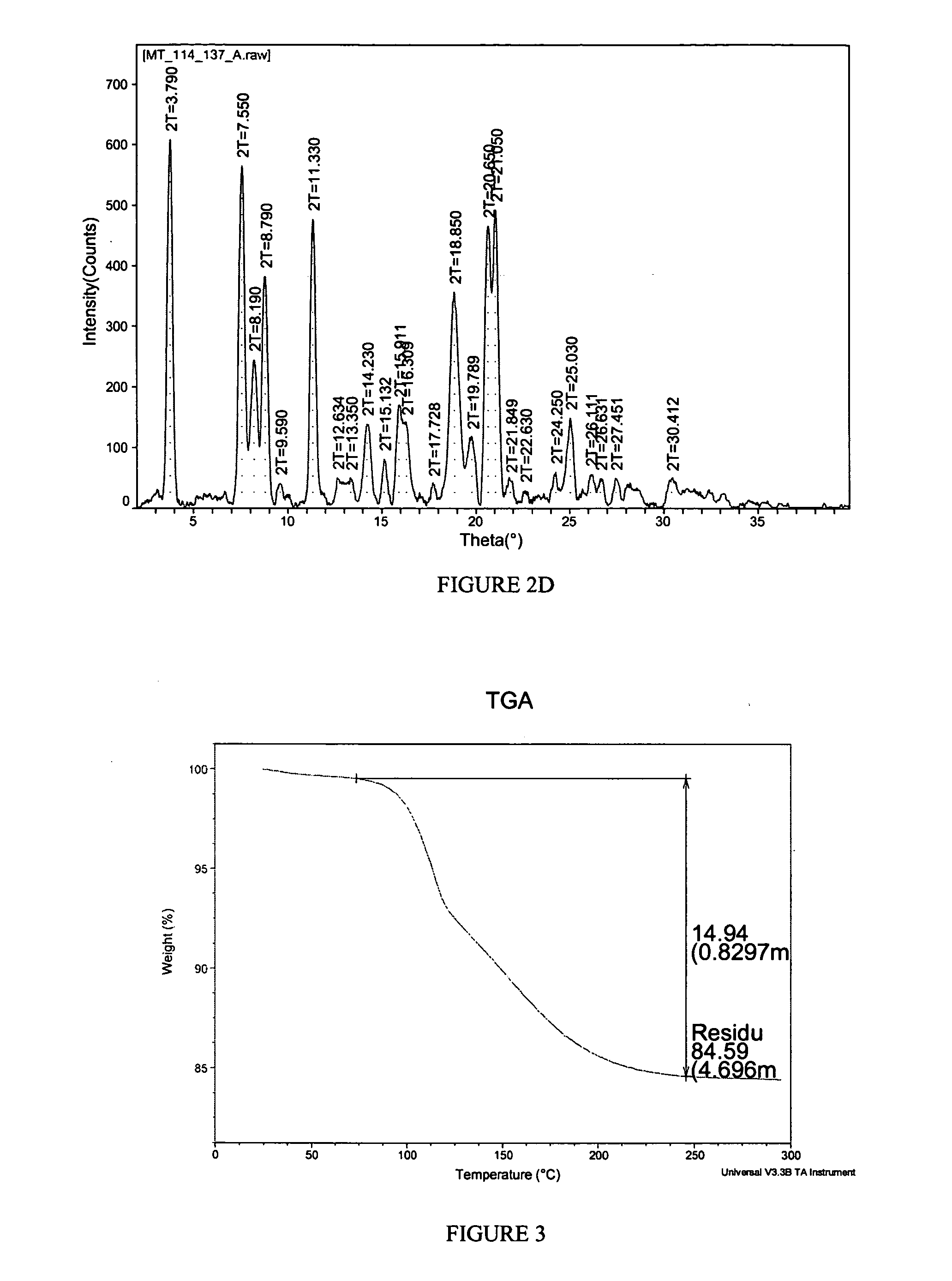Pharmaceutical propylene glycol solvate compositions
- Summary
- Abstract
- Description
- Claims
- Application Information
AI Technical Summary
Benefits of technology
Problems solved by technology
Method used
Image
Examples
example 1
Celecoxib Sodium Salt PG Solvate
[0144] A propylene glycol solvate of the sodium salt of celecoxib was prepared. To a solution of celecoxib (312 mg; 0.818 mmol) in diethyl ether (6 mL) was added propylene glycol (0.127 mL, 1.73 mmol). To the clear solution was added sodium ethoxide in ethanol (21%, 0.275 mL, 0.817 mmol). After 1 minute, crystals began to form. After 5 minutes, the solid had completely crystallized. The solid was collected by filtration and was washed with additional diethyl ether (10 mL). The off-white solid was then air-dried and collected. The crystalline salt form was identified as a 1:1 solvate of propylene glycol. The solid was characterized by TGA and PXRD. The results are depicted in FIGS. 1 and 2A.
[0145]FIG. 1 shows the results of TGA. A weight loss of about 15.6% was observed between about 65 and 200 degrees C. which represents 1 molar equivalent of propylene glycol to celecoxib Na salt. FIG. 2A shows the results of PXRD. Peaks, in 2-theta angles, that ca...
example 2
Celecoxib Potassium Salt PG Solvate
[0148] A propylene glycol solvate of the potassium salt of celecoxib was prepared. To a solution of celecoxib (253 mg, 0.664 mmol) in diethyl ether (6 mL) was added propylene glycol (0.075 mL, 1.02 mmol). To the clear solution was added potassium t-butoxide in tetrahydrofuran (THF) (1 M, 0.66 mL, 0.66 mmol). Crystals immediately began to form. After 5 minutes, the solid had completely crystallized. The solid was collected by filtration and was washed with additional diethyl ether (10 mL). The white solid was then air-dried and collected. The crystalline salt form was found to be a 1:1 propylene glycol solvate of celecoxib K salt. The solid was characterized by TGA and PXRD. The results are depicted in FIGS. 3 and 4.
[0149]FIG. 3 shows the results of TGA. A weight loss of about 14.94% was observed between about 65 and about 250 degrees C. which is consistent with 1 molar equivalent of propylene glycol to celecoxib K. FIG. 4 shows the results of PX...
example 3
Celecoxib Lithium Salt PG Solvate
[0150] A propylene gly solvate of the lithium salt of celecoxib was prepared. To a solution of celecoxib (264 mg, 0.693 mmol) in diethyl ether (8 mL) was added propylene glycol (0.075 mL, 1.02 mmol). To the clear solution was added t-butyl lithium in pentane (1.7 M, 0.40 mL, 0.68 mmol). A brown solid formed immediately but dissolved within one minute which subsequently yielded a white fluffy solid. The white solid crystallized completely after 10 minutes. The solid was collected by filtration and was washed with additional diethyl ether (10 mL). The white solid was then air-dried and collected. The crystalline salt form was found to be a 1:1 propylene glycol solvate of celecoxib Li. The solid was characterized by TGA and PXRD.
[0151] The results of TGA are depicted in FIG. 5 and show a weight loss of about 16.3% between 50 degrees C. and 210 degrees C. which is consistent with 1 molar equivalent of propylene glycol to celecoxib Li. The results of P...
PUM
| Property | Measurement | Unit |
|---|---|---|
| Angle | aaaaa | aaaaa |
| Angle | aaaaa | aaaaa |
| Angle | aaaaa | aaaaa |
Abstract
Description
Claims
Application Information
 Login to View More
Login to View More - R&D
- Intellectual Property
- Life Sciences
- Materials
- Tech Scout
- Unparalleled Data Quality
- Higher Quality Content
- 60% Fewer Hallucinations
Browse by: Latest US Patents, China's latest patents, Technical Efficacy Thesaurus, Application Domain, Technology Topic, Popular Technical Reports.
© 2025 PatSnap. All rights reserved.Legal|Privacy policy|Modern Slavery Act Transparency Statement|Sitemap|About US| Contact US: help@patsnap.com



